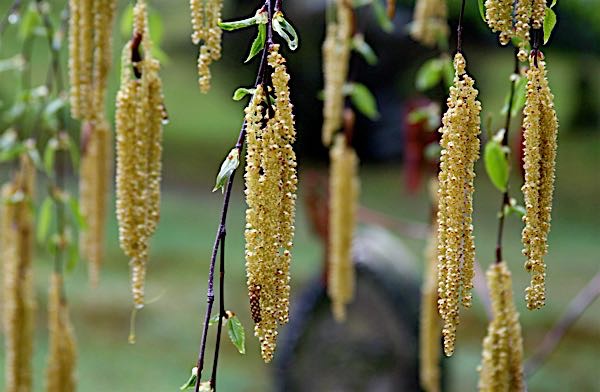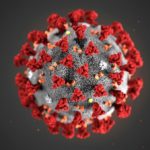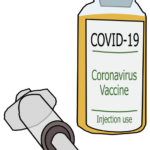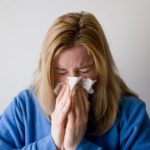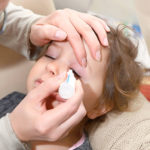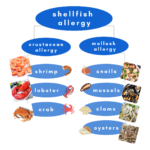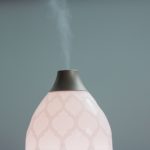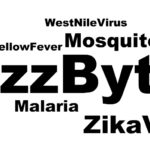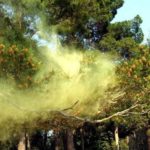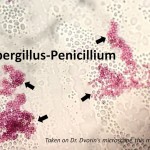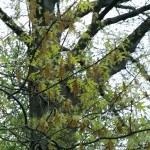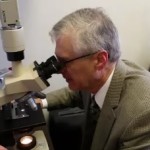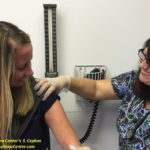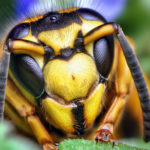allergies, allergy, allergy symptoms, Dr. Donald Dvorin, grass pollen, local pollen count, oak tree pollen, pollen, pollen count, spring, The Asthma Center, tree pollen
Weathering Wednesday: Tree Pollen Won’t Wash Away
Quick heavy rains with wind deposited between 0.25 – 0.5 of an inch of rain throughout our area last evening. If you were caught out in it, the clouds moved in fast and the downpour felt more like an inch. In downtown Philadelphia, umbrellas blew inside out, and in the suburbs lawn furniture tipped over. Sunshine returned, but behind the storm, temperatures fell (closer to historical averages). Allergy sufferers hoping for a break from symptoms were likely disappointed.
“The numbers went down, but not that much” says Dr. Dvorin as he finished counting today’s air sample. “And expect a resurgence as soon as the ground dries out, 24-48 hours after the storm,” he warns.
Today’s tree pollen count for the Delaware Valley is approximately 935 grains per cubic meter of air. For our local area, tree pollen counts 60-999 are very high and may cause moderate to severe symptoms. The composition of today’s tree pollen count was similar to what has been in evidence over the last several days with Oak tree pollen accounting for more than 80% of all tree pollen. Pine and Mulberry again hold second place and together account for close to 10% of the air sample (Don’t miss Dr. Dvorin’s Manic Monday commentary which includes an explanation of the impact of Pine and Mulberry trees in the Delaware Valley) Today’s grass pollen counts are low, and outdoor mold spores remain high.
How much difference did the rain make for Tree Pollen Counts?
For the big three, Oak, Pine and Mulberry, the following decreases were noted:
The amount of rain our area received varied, but analysis of The Asthma Center’s air sample counts for the “big 3” (Oak, Pine & Mulberry) shows that overnight Oak tree pollen decreased 14 – 28%, Pine Tree pollen decreased 43-55%, and Mulberry Tree pollen decreased 43-63%.
What’s Ahead?
Clouds, more rain and cooler temperatures are in the forecast for our area with predictions for precipitation from now through Monday, but allergy and asthma sufferers shouldn’t count on a break from symptoms.
“As things dry out, expect pollen levels to bounce. If it’s humid, outdoor mold spore levels may climb.” says Dr. Dvorin “but we’ll know for sure when I do the counts.”
Be sure to check back in for The Asthma Center’s daily Pollen and Mold Spore Count, the Delaware Valley’s only Official count station which is certified by the National Allergy Bureau. Subscribe to receive our daily counts by email or check out some of our other blog posts to learn more about what is in the air, how it can affect you, and what you can do about it.
What’s Can You Do?
- Be proactive—know what triggers your symptoms (allergy skin testing) and limit or avoid exposure. This is the strategy The Asthma Center’s board certified Allergists employ to help patients get relief.
- If you’re on medications to manage your allergies, don’t stop taking them because it rains or temperatures are cooler. With allergies, if you stop taking your medications and then suddenly have more exposure to a trigger (like Tree Pollen levels resurging when things dry out), your allergy symptoms may even be worse.
Get Relief-Saturday appointments are available!
The best way to manage your allergies is to find out exactly what’s causing your symptoms. The Asthma Center has 9 locations in PA & NJ with the following Saturday hours in addition to our normal Monday – Friday business hours.
- May 7 and May 14: the Mount Laurel, NJ location will be seeing patients.
- May 14 and June 4: the Langhorne, PA office will be seeing patients.
Recent
Popular

